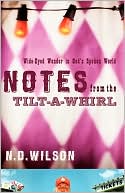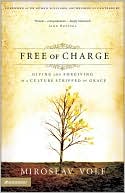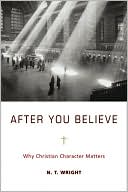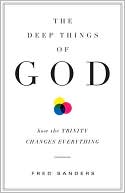" Cast your bread upon the waters, for you will find it after many days. Give a portion to seven, or even to eight, for you know not what disaster may happen on earth. If the clouds are full of rain, they empty themselves on the earth, and if a tree falls to the south or to the north, in the place where the tree falls, there it will lie. He who observes the wind will not sow, and he who regards the clouds will not reap. As you do not know the way the spirit comes to the bones in the womb of a woman with child, so you do not know the work of God who makes everything. In the morning sow your seed, and at evening withhold not your hand, for you do not know which will prosper, this or that, or whether both alike will be good." (Ecclesiastes 11:1-6, ESV)
So if you read this text and are wondering what in the world it is saying, don’t feel alone. At several points of this passage, I have no clue what the Preacher is talking about. Nevertheless, even in this enigmatic passage there are redeeming lessons.
I always thought that if you cast bread into the water it will just get really soggy and eventually dissolve into little bits. Should I really expect to get it back? Maybe that is the point. Water in ancient Hebrew mind was considered the symbol of chance and chaos. Perhaps the Preacher is saying, “Go ahead. Entrust your livelihood to chance. I’m sure it will all work out in the end. Take a big gamble. I’ll pay off. Or . . . not, idiot.” He follows the thought up with counsel to prepare instead for disaster. In other words, don’t look at life and think, “Perhaps there will be no problems, no disasters. Maybe everything will just work out. Maybe I’ll be the only person in existence that never faces tragedy.” Instead, think realistically about reality. Disneyland doesn’t exist, so stop acting like it does. Stop thinking that if you just think positively enough, everything will be okay.
Such realism can lead to paralyzing pessimism, which is why the Preacher balances these thoughts with a call to action. Rain or lack of it can negate all your efforts. Tragedy can come and destroy all your work. But don’t sit and fret about the tragedy that could be; otherwise, you will never get anything done. This line of logic may sound like a contradiction to the preparation for disaster the Preacher just encouraged, but it’s not. Preparing for tragedy doesn’t mean fret and do nothing. It means realize that life is fraught with problems and be ready to deal with them. Just as you cannot know how the spirit of life enters an unborn child (ponder that one for awhile), you simply do not know what is going to happen. But not knowing the future doesn’t mean stop trying. Use your time significantly, both in the morning and at night. Perhaps, one will be in vain or both. But then again, perhaps they will be both succeed.
The Preacher gives good advice that Americans in particular need to hear. We want life to be the simple, fun, entertaining world of TV sitcoms. We even half expect it (perhaps even more than half). We are shocked by tragedy. And the result is that when disaster comes, it renders us useless. “This isn’t supposed to happen.” “Why me?” “I can’t deal with this.” These generally lead to “What use is it anyway?” Ever wonder why the most privileged and prosperous nations in the world’s history is also one of the most depressed. Here is a clue.









No comments:
Post a Comment